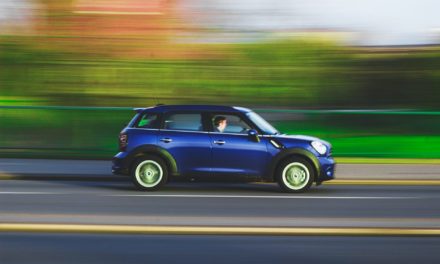According to the AAA, the daily average price for a gallon of gasoline in the United States is $3.565 as of July 17, 2023.
If you’re looking to save some money on gas, then this is the blog post for you. We all want to get the most out of every tank of fuel we put into our cars. Not only will it help our wallets, but also reduce our carbon footprint and benefit the environment. Whether you drive a compact car or an SUV, several simple yet effective strategies can help you optimize your fuel consumption.
In this blog post, we share expert tips and tricks for getting better gas mileage out of your car. You’ll learn how to manage your speed wisely, properly maintain and care for your vehicle’s engine parts, as well as several other useful strategies that can extend the life of your car and bolster its fuel efficiency significantly.
Improve MPG Performance
When it comes to boosting fuel efficiency, trucking firms are those that constantly seek ways to optimize their operations and reduce costs. One effective strategy they can implement is to learn how to improve MPG (miles per gallon) performance. By maximizing the distance traveled per unit of fuel consumed, trucking companies can significantly reduce their fuel expenses and carbon emissions.
There are several key factors that contribute to MPG’s performance in the trucking industry. For instance, investing in modern and fuel-efficient trucks is essential. Newer models often come equipped with advanced technologies such as aerodynamic designs, low rolling resistance tires, and engine enhancements that greatly improve fuel efficiency.
Additionally, implementing effective driver training programs can have a substantial impact on MPG performance. Educating drivers on best practices such as maintaining consistent speeds, avoiding unnecessary idling, and practicing efficient driving techniques can result in significant fuel savings over time.
Embracing technological advancements such as telematics systems can provide real-time insights into driving behavior and vehicle performance. These systems allow trucking firms to monitor factors like speed patterns, idling times, and overall engine health, enabling them to identify areas for improvement and make data-driven decisions that positively impact MPG performance.
Limit Idling
You might have noticed that some late-model vehicles feature a stop-start system. The system allows cars to save fuel by shutting off the engine automatically when they stop. When the brake is released, the engine will automatically restart.
Idling your car uses up to ½ gallon of fuel per hour and emits more pollution when it is stationary. Next time you are at a standstill and waiting for someone to arrive, turn off your car’s engine to save fuel.
Change Your Driving Habits
Driving is a necessary part of life for many of us, but that doesn’t mean we can’t make an effort to be better drivers. A few simple changes to our driving habits can make a big difference, both in terms of safety and the environment.
By accelerating slowly and avoiding hard braking, we not only save on fuel costs but also reduce wear and tear on our vehicles. And by obeying the speed limit, we can keep ourselves and others safe on the road. So, take a few moments to reflect on your driving habits, and see if there are any adjustments you can make to become a better, safer, and more responsible driver.
Maintain Your Vehicle
Your vehicle is not just a mode of transportation, it’s an investment. That’s why it’s crucial to take care of it properly. Two important ways to do that are by keeping your tires properly inflated and getting regular oil changes.
Properly inflated tires not only improve fuel efficiency but also enhance handling and safety on the road. Regularly changing the oil can keep your vehicle running smoothly and help prevent costly repairs down the road. By taking the time to maintain your vehicle, you’re not only protecting your investment but also ensuring a safer, smoother ride for you and your passengers.
Lighten Your Ride

Driving with extra weight in your car can negatively impact fuel efficiency and increase drag, ultimately costing you more at the pump. One way to combat this is to remove any unnecessary items weighing your vehicle down.
Sports equipment or extra luggage can add up quickly and make you slower on the road, so taking the time to clear out the clutter can make a big difference. When it comes to reducing your carbon footprint and saving money on gas, every little bit helps.
Final Thoughts
By implementing the expert advice discussed in this article, you can significantly increase your vehicle’s fuel efficiency and reduce your carbon footprint.
Remember to keep regular vehicle maintenance, and make sure to adopt fuel-efficient driving habits like avoiding excessive idling, reducing unnecessary weight in the car, and using cruise control on highways to make a noticeable difference in your gas mileage.







